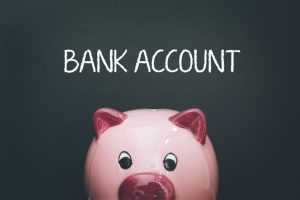Are you thinking about getting a personal loan to manage your budget or cover unexpected costs? Personal loans can be an excellent way to access cash quickly when you need it most. However, like any financial product, personal loans come with both advantages and potential drawbacks. Understanding the pros and cons is crucial for making informed decisions about whether they fit your financial needs.
Key Takeaways
Quick Access to Cash: Personal loans provide fast access to funds, making them ideal for emergencies or planned expenses.
Flexibility: Loans can vary in amount and repayment terms, allowing customization to your financial situation.
Impact of Rates and Fees: Interest rates and additional fees play a significant role in determining the overall cost of the loan.
Credit Scores: Your credit history and score are key factors in determining loan approval and terms.
Informed Decisions: Weighing the pros and cons carefully helps ensure that taking out a personal loan is the right move for you.
What Are Personal Loans?
Before borrowing money, it’s essential to have a clear understanding of personal loans. They allow you to borrow a lump sum of money for a variety of purposes. Whether you’re consolidating debt, paying for home renovations, or covering unexpected medical bills, personal loans are versatile.
Definition and Basic Features
Personal loans are typically unsecured, meaning you don’t need to pledge collateral to secure the loan. Instead, the loan is based on your ability to repay, often reflected in your credit score. These loans generally feature a fixed interest rate and a set repayment term, which can range from a few months to several years.
Here are the key characteristics that define personal loans:
Flexibility in Use: You can use the loan for almost anything, such as paying off high-interest debt, home repairs, or medical emergencies.
Fixed Interest Rates: Your interest rate remains constant throughout the life of the loan, offering predictability in repayment amounts.
Fixed Repayment Schedule: With a fixed schedule, you know exactly when the loan will be fully paid off, which makes financial planning easier.
Types of Personal Loans Available

Personal loans come in various forms, each designed for specific financial needs. Understanding the different types of loans can help you choose the best option for your situation.
Unsecured Personal Loan
Description: No collateral required.
Typical Uses: Debt consolidation, home improvements, or large purchases.
Secured Personal Loan
Description: Requires collateral (e.g., a car or savings account).
Typical Uses: Large purchases or major life expenses, such as a wedding or vacation.
Debt Consolidation Loan
Description: Combines multiple debts into one loan.
Typical Uses: Simplifying finances and potentially lowering overall interest rates by consolidating high-interest debts like credit card balances into a single monthly payment.
By understanding the different options available, you can select the loan that best matches your needs and financial situation.
The Major Advantages of Personal Loans
Personal loans are popular because they offer several financial benefits, which can make them an attractive option for those in need of additional funds. Let’s delve into some of the key advantages.
Quick Access to Funds
One of the most significant benefits of personal loans is the quick access to cash. Many lenders process applications rapidly and disburse funds quickly, which is crucial when you need money in emergencies. Unlike some other forms of credit, which might take weeks to be approved, personal loans can be finalized within a matter of days.
Flexibility in Use
Personal loans offer substantial flexibility in terms of how the funds can be used. Unlike mortgages or auto loans, which are specific to purchasing homes or cars, respectively, personal loans can cover a broad range of expenses:
Debt Consolidation: Pay off multiple high-interest debts, combining them into one manageable loan.
Home Improvements: Renovate or repair your home, increasing its value and improving your living conditions.
Medical Bills: Cover unexpected medical expenses without depleting your savings.
This flexibility allows you to manage your finances more effectively and use the loan to suit your personal needs.
Fixed Repayment Schedule
With a fixed repayment schedule, personal loans offer predictability in your financial planning. When you know exactly how much you will pay each month and when the loan will be paid off, it’s easier to budget. For example, if you take out a loan with a fixed interest rate and a term of 5 years, your monthly payment amount will be constant, which simplifies your cash flow management.
This is in contrast to loans with variable interest rates, where payments can fluctuate depending on market conditions. Personal loans offer stability, allowing you to better plan your finances.
Financial Benefits of Personal Loans
In addition to their flexibility, personal loans come with several financial perks that can significantly improve your financial standing.
Lower Interest Rates Compared to Credit Cards
Personal loans generally offer lower interest rates compared to credit cards. While credit card interest rates can range from 15% to 25%, personal loans typically have rates between 6% and 12%. This makes personal loans a more affordable option, especially for consolidating high-interest debt. By shifting credit card balances to a personal loan, you could save a significant amount of money over time.
Potential for Debt Consolidation
Debt consolidation is another major advantage of personal loans. If you have multiple credit cards or loans with high interest rates, consolidating them into a single loan with a lower interest rate can save you money on interest and simplify your payments. Instead of juggling multiple payments and interest rates, you make one monthly payment at a more favorable rate.
By consolidating debt, you can take control of your finances, avoid missing payments, and work towards becoming debt-free more efficiently.
Building Credit History
Successfully managing and repaying a personal loan can help build your credit history. Timely repayment reflects positively on your credit score, showing lenders that you can handle debt responsibly. A good credit history is essential for future borrowing, whether for another loan, a mortgage, or even credit cards with better rewards and terms.
The Significant Drawbacks of Personal Loans

While personal loans offer many benefits, there are also some drawbacks that you need to be aware of. By understanding these risks, you can make more informed decisions about whether a personal loan is the right choice for your financial situation.
Interest Costs Over Time
One of the biggest concerns with personal loans is the interest costs. The longer you take to repay the loan, the more interest you will pay. For instance, a 5-year loan with a 10% interest rate will result in more interest paid than a 3-year loan, even if both loans have the same principal amount.
Here’s an example to illustrate the difference in interest costs:
| Loan Term | Interest Rate | Total Interest Paid |
|---|---|---|
| 3 Years | 10% | $1,500 |
| 5 Years | 10% | $2,500 |
As you can see, extending the loan term increases the amount of interest paid. Therefore, it’s important to consider how long you are willing to commit to repayment when taking out a personal loan.
Fees and Penalties
In addition to interest, personal loans can come with various fees and penalties. For example:
Late Payment Fees: If you miss a payment, you may be charged additional fees.
Origination Fees: Some lenders charge an origination fee, which is deducted from the loan amount when the loan is disbursed.
Prepayment Penalties: If you pay off the loan early, some lenders may charge a penalty fee.
These additional costs can increase the total cost of the loan, making it more expensive than initially expected. Be sure to read the fine print to understand all the fees associated with the loan.
When Personal Loans Make Financial Sense
Personal loans can be a great tool for managing large expenses or consolidating debt, but it’s important to understand when taking one out is the right choice. Here are some situations where personal loans might make financial sense:
Home Improvements
If you’re looking to make home improvements, such as upgrading a kitchen or adding a bathroom, a personal loan can provide the necessary funds. This can be a smart investment, as home renovations can increase the value of your property and improve your living environment.
For more on using personal loans for home improvements, check out NerdWallet.
Debt Consolidation Scenarios
Debt consolidation is often a key reason people take out personal loans. By consolidating high-interest credit card debt into one personal loan with a lower rate, you can simplify your finances and save money on interest.
Major Life Events
Life events like weddings or major purchases can be expensive. Personal loans can provide a way to cover these costs without depleting your savings. However, it’s essential to ensure that you can afford the monthly payments before borrowing for such expenses.
Emergency Expenses
Unexpected expenses, like medical bills or car repairs, can arise at any time. A personal loan can help cover these emergency costs, allowing you to handle the situation without scrambling for funds.
When to Avoid Taking Out a Personal Loan

While personal loans can be incredibly helpful, there are certain situations where it’s best to avoid them. Here are a few scenarios when a personal loan may not be the best option:
Unnecessary Purchases
If you are thinking about taking out a loan for something that is not essential, such as a luxury item or an impulse buy, it may not be wise. Personal loans are meant to cover necessary expenses, and using them for non-essential purchases can lead to financial strain.
Unstable Income
Taking out a loan when your income is unstable can be risky. If you’re unsure whether you’ll be able to make the monthly payments, it’s better to hold off on borrowing until you have a stable income.
Better Alternatives Exist
If your credit is good, there may be better alternatives to a personal loan, such as a credit card with a lower interest rate or borrowing from friends or family (with clear repayment terms).
Conclusion
Personal loans can be a valuable financial tool when used responsibly. They provide quick access to cash, offer flexibility in their uses, and have lower interest rates compared to credit cards. However, it’s important to understand the risks, such as interest costs over time, fees, and the impact on your credit score.
Before applying for a personal loan, make sure to assess your ability to repay and explore other alternatives if necessary. By carefully considering your options, you can ensure that a personal loan is the right choice for your financial goals.









